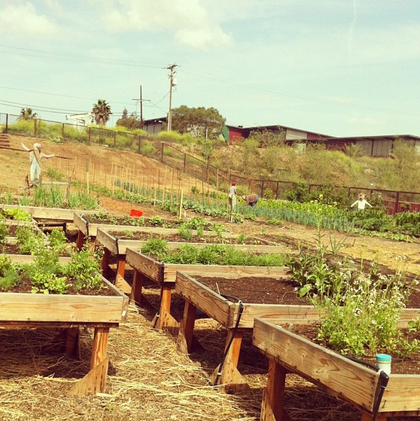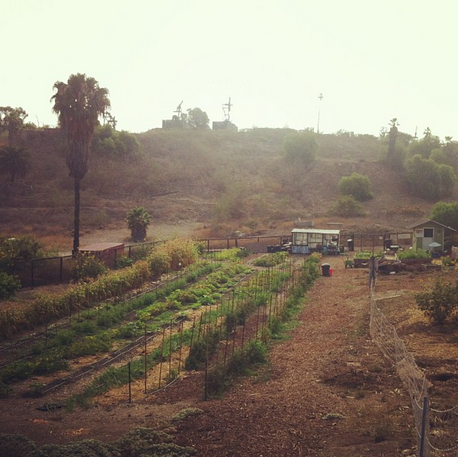Sasha Kanno has always had a deep connection to the earth and what it can bring about--quite literally. In a continually booming urban landscape that often exchanges concrete for earth, the importance of reconnecting people to produce--straight from its source--is something that is important to Sasha.
And even more, it's important for sustainability. After all, we have some seven billion stomachs to fill daily on our planet and being able to do that exerts a heavy endeavor on behalf of Earth. Withwater draws pollution, land destruction, energy loss, and all the other end-times things that human agriculture contributes to, we need a way to make our food--even us urbanites--as local as possible.
The proliferation of urban farms is not just a cultural fad misnomered as hippie culture; it is actually a solution to the aforementioned problems--adding greenery to cities, they increase shading, cool down our environments, and reduce harmful runoff--as well as providing communal benefits. A 2005 study by the Urban Agriculture Committee showed that urban farms in North America and Western Europe don't just increase healthy, active work for city dwellers, they prove a fascinating point about human psychology: that the experience of growing food is correlated with its consumption, meaning that the more people experience growing food, the more likely they are to eat it.
From 2008 and for two years following, Sasha held an active community garden in the Wrigley area of Long Beach and its success that followed her inspired her to approach her garden from a different angle: food production.
Sasha began, much with the support of the City of Long Beach Parks, Recreation and Marine Department, searching for properties. And it took her four--yes, four times, four different properties--to finally settle in on and make what is now known as Farm Lot 59.
"The responses at first were totally mixed, with some just outright against it," Sasha said. "They didn't want that in the neighborhood, they didn't want school children around, they didn't understand why we grow vegetables when there are markets... The neighbors were so hateful that I settled on the property I'm at now."
Just one-sixth of an acre, the Farm Lot 59 property sits behind a tiny hill and truly feels like another world with its lines of hand-toiled rows of produce and flowers while chickens cluck. And of course, it wasn't always that way.
"It took a year-and-a-half to clean up all the garbage," Sasha said. "It was a legal dump: all sorts of roofing materials, carpet, you name it."
Now in its second year of full operation, the farm has already undergone a multitude of changes--even in the way it provides the food it generates. Sasha attempted to at first provide mixed boxes that charge customers monthly and deliver weekly; however, the idea ultimately proved unfruitful. So she opted to create a storefront, Farm Stand 59, which will be approaching its first year of operation come November.
"We sell out weekly," Sasha said--and that sell-out has led her to often rent the tractor from Charlie Moore's Gladys Avenue Farm in order to till parts of the hardpan earth that needs to be broken which further led her to a realize that the farm itself needs a tractor.
The search for a tractor, at least initially, seemed possible. The Women's Council of Long Beach actually began directly searching for someone or some group to donate a tractor straight to Farm Lot 59 but eventually, was only able to provide her a grant that covered half the cost. And while deeply thankful, she is hoping that an online donation campaign will help solidify the efforts (they are just $1,500 away from making that tractor a reality).
Until then, she and her Farm Lot 59 cohorts will continue to toil the soil with their hands while generating food for a city that is growing as admirable for its farmers as it is its hipsters.
To donate, visit: http://www.longbeachlocal.org/







